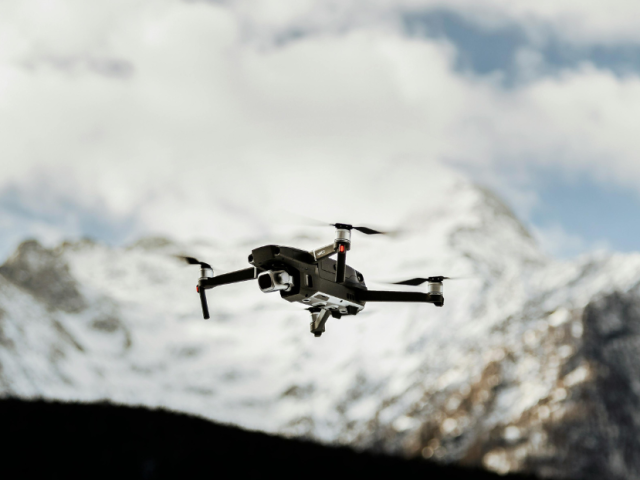
Drones could deliver defibrillators to cardiac arrest patients in the UK
27 August
The prospect of drones delivering defibrillators to people having cardiac arrest in the UK is closer to reality than ever before, thanks to research supported by Health and Care Research Wales.
Researchers funded by the National Institute for Health and Care Research (NIHR), have tested using drones to respond to 999 calls as part of emergency simulations for a pioneering study.
Experts at the University of Warwick teamed up with the Welsh Ambulance Services University NHS Trust and autonomous drone specialists SkyBound for the study. The drones – which received excess treatment cost funding from Health and Care Research Wales - flew defibrillators to a training exercise in a remote countryside location where ambulance crews would usually be delayed in reaching by road.
Results of the study – called ‘The 3D project’ – have published in the journal Resuscitation Plus. Researchers hope this is the next step towards the technology being used in real-life settings and across the NHS.
Researchers designed a system to deliver an AED attached by a winch to a DJI M300 drone following a 999 call. Skybound’s automated drone software activated and controlled the drone’s flight. The AED was lowered to a member of the public to help them carry out resuscitation on a CPR mannequin, all while receiving instructions from ambulance service call handlers.
The study, which recruited 11 participants, involved assessing real-time communications between the drone pilot, call handler and public bystander. Experts observed how those taking part behaved and interacted with each other. They also timed how quickly the mock cardiac arrest patient would be reached.
Study findings show the technology is very promising. The drone flew autonomously and safely, with good links to the ambulance service. Participants reacted positively to drone delivery of the AED.
The next stage will be funding larger studies to test the technology and evaluate whether it can be used in the NHS. Currently, drones are used to deliver defibrillators in some circumstances in Denmark and Sweden.
Carl Powell, Clinical Lead (Acute Care) at the Welsh Ambulance Service, said: “In a cardiac arrest, every second counts. We will always send an ambulance as quickly as possible, but starting chest compressions and delivering an electric shock with a defibrillator in the meantime could mean the difference between life and death.
“We’re grateful to NIHR and others for funding this research, which has demonstrated that the technology shows a great amount of promise.
“We’ll continue to work with partners to further explore and test how drone-delivered defibrillators could be harnessed by the NHS.”
Chief Investigator Dr Christopher Smith, from the University of Warwick, said: “Ambulance services work as swiftly as possible to get to patients who have suffered cardiac arrests. However, it can sometimes be difficult to get there quickly. AEDs can be used by members of the public before the ambulance gets there, but this rarely happens. We’ve built a drone system to deliver defibrillators to people having cardiac arrest which could help save lives.
“We have successfully demonstrated that drones can safely fly long distances with a defibrillator attached and maintain real-time communications with emergency services during the 999 call. We are in a position where we could operationalise this system and use it for real emergencies across the UK soon.”